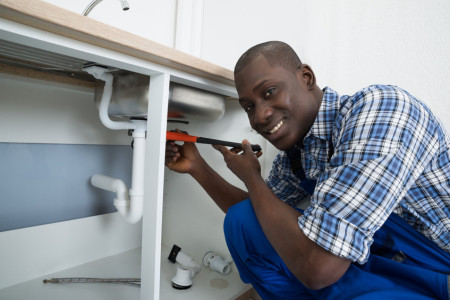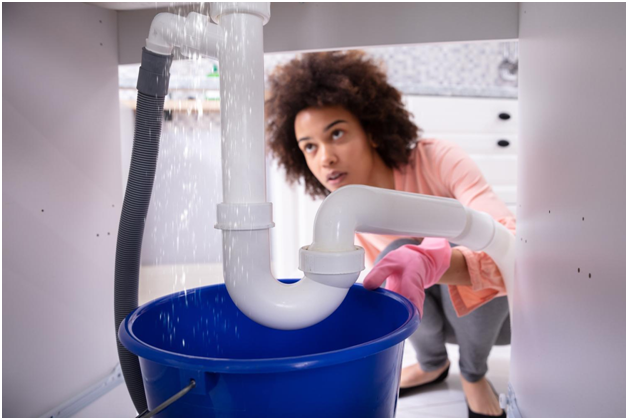This article below involving Expert Tips for Emergency Plumbing Repairs is amazingly motivating. You should check this stuff out.

Plumbing emergency situations can strike at any moment, causing stress and anxiety and prospective damages to your home. Whether it's a ruptured pipe, a clogged drainpipe, or a leaky tap, understanding how to take care of the circumstance up until a professional plumbing professional shows up can conserve you from additional problems. This write-up provides crucial emergency pipes tips to aid you alleviate damages and restore control during a plumbing situation.
Shut off the Water Supply
The initial step in any kind of plumbing emergency situation is to turn off the water. For localized issues, such as a leaking tap or toilet, shut off the shutoff near the fixture. When it comes to a major leakage or burst pipe, situate your home's primary water shut-off shutoff and turn it off promptly. Recognizing the place of these shutoffs in advance can conserve important time during an emergency situation.
Address Small Leakages with Temporary Repairs
Little leakages can rapidly come to be significant issues if left uncontrolled. Use these momentary fixes up until specialist assistance arrives:
- Pipeline Tape or Epoxy Putty: Apply water resistant tape or epoxy putty to momentarily seal the leak.
- Rubber and Clamp Method: Cover an item of rubber or an old inner tube around the leak and protect it with a tube clamp or duct tape.
- Containers or Towels: Area pails under the leak to consist of water and protect against damage to flooring or furniture.
- While these repairs aren't irreversible, they can aid minimize water loss and damage.
Unclog Drains Pipes Securely
A clogged up drainpipe can be a frustrating and unpleasant concern. Here's how to tackle it: - Utilize a Bettor: For sinks or bathrooms, a bettor can often dislodge minor obstructions. Ensure you use the correct sort of bettor for the component.
- Warm Water and Meal Soap: For grease-related clogs, pour a mixture of warm water and recipe soap down the tubes to separate the grease.
- Avoid Chemical Drain Cleaning company: While alluring, chemical cleansers can cause more harm than excellent, specifically to older pipelines.
- If these techniques do not function, prevent using excessive pressure, as it might intensify the blockage.
Take Care Of Overflowing Toilets
An overflowing toilet can cause prompt turmoil. Right here's what you ought to do: - Stop the Water Circulation: Remove the container cover and push down on the flapper valve to quit water from entering the bowl. Shut off the supply of water to the toilet if essential.
- Dive Gently: Use a commode plunger to get rid of the obstruction, but stay clear of aggressive plunging, which can trigger splashing or more damages.
- Include the Spill: Usage towels or a mop to clean up water swiftly to prevent floor covering damage.
Shut Off Your Water Heater
In certain emergency situations, such as a burst pipe, it's important to shut off your hot water heater. This avoids overheating or damages to the unit when water quits flowing. Switch off the power supply to the water heater (electrical or gas) and let it cool to prevent possible dangers.
Temporarily Quit a Burst Pipeline
A burst pipeline can lead to significant water damages in minutes. To alleviate the issue:
- Clamp or Cover the Pipe: Utilize a pipe clamp, rubber, or duct tape as a short-lived seal.
- Divert Water Circulation: If possible, draw away the water right into a container or container to limit damages to surrounding areas.
- Maintain the Location Dry: Use towels or a wet/dry vacuum cleaner to remove standing water.
- Call an expert plumbing professional instantly to resolve the trouble completely.
Deal With Frozen Pipes Meticulously
In colder climates, icy pipelines are a common emergency situation. If you suspect a frozen pipeline: - Switch off the Water: Shut off the main water system to avoid a ruptured pipeline.
- Thaw Slowly: Make use of a hairdryer, hot pad, or cozy towels to thaw the pipe slowly. Stay clear of open fires or severe warmth, as these can damage the pipe.
- Examine for Leakages: Once the pipeline is thawed, check for cracks or leaks prior to turning the water back on.
Stop More Damage
Taking quick action to reduce damages can conserve you money and time in the long run. Here's how:
- Move Valuables: Remove furniture, electronic devices, and various other products from the afflicted location.
- Usage Sandbags: For flooding circumstances, area sandbags around the location to redirect water.
- Shut Off Electrical power: If water has actually gotten to electric outlets or devices, switch off the electricity to prevent shocks or fires.
. Have an Emergency Plumbing Kit
Prepare a fundamental plumbing emergency set to deal with minor issues efficiently. Your kit ought to consist of:
- Flexible wrench
- Plumber's tape
- Pipe clamps
- Towels and rags
- A bettor
- Epoxy putty
- Pail.
- Having these devices handy can make a substantial difference in your ability to manage emergencies.
Know When to Call an Expert.
While quick fixes can assist briefly, certain plumbing concerns call for instant expert interest. Call a plumbing technician if:. - A burst pipe creates considerable flooding.
- Drains or toilets remain stopped up in spite of your efforts.
- You notice relentless leakages or water pressure issues.
- Your hot water heater is dripping or malfunctioning.
- Immediately getting in touch with a professional makes certain the problem is fixed correctly and prevents additional problems.
Conclusion.
Pipes emergencies can be overwhelming, yet with the best knowledge and devices, you can handle the situation properly up until aid shows up. By turning off the water, attending to small leakages, and using short-lived repairs, you can minimize damages and keep your home safe. Bear in mind, these suggestions are temporary services; always seek advice from a licensed plumbing technician to handle the origin of the problem. Prep work and quick reasoning are your best allies in any kind of plumbing emergency situation.
8 Helpful Tips for Managing Plumbing Emergencies at Home
If your plumbing system hasn’t failed once, wait for it because almost everyone has a story to tell. Sometimes, it could be simple emergencies such as a leaking pipe, a blocked cistern, or even a big burst pipe. In situations like this, you need to have some handy tips to save you some money and from possible damages.
Take care of minor issues early.
Sometimes, you could have avoided an emergency by taking proactive measures while it was still early. Some major plumbing emergencies can be a result of an ignored minor issue. We recommend that you have items like plumbing tapes and other related items. A plumbing tape can allow you to manage minor leaks before the plumber arrives.
Cut off the water supply.
This tip is essential in almost any type of leakage problem. For problems like minor leakages in the toilet or kitchen, turn off the supply that takes water to the affected pipes. If the leakage is a major pipe, you must shut off the supply valve to the entire building. This will help you avoid flooding your home and neighbors if you share a flat.
Know your plumbing system
Folks typically move into a new apartment without understanding the water supply around the building. This can prove disastrous if a water emergency arises and the plumber is far away. The previous tip will prove useless if you don’t practice this one. More importantly, know where your water shut-off valve is located – you’ll need that knowledge to prevent potential home floods.
Have some common handy tools
There are lots of plumbing emergencies that you can handle without hiring a plumber. That’s why you must keep some tools available always. Some tools that you can use to fix simple plumbing emergencies easily include plumbing tapes, screwdrivers, thread seal tapes, plungers, pliers, tape measures, and rubber gloves.
Insulate your pipes from cold
You’ll save yourself from many plumbing expenses if you protect your water pipes from the cold. This is because of the harmful effects that cold weather can have on your pipes. During winter, your pipes can burst from being overly expected to freezing temperatures. So, make sure insulators are there to keep the pipes working correctly.
Avoid practices that will clog your toilet.
Many people indulge in practices that can damage the plumbing system of the entire building. One of these is when they use their toilet to dispose-off garbage. They flush all kinds of things, such as paper towels, bandages, hairs, female sanitary products, etc., down the toilet. This will block your toilet in the long run, incurring unnecessary expenditures. Dump such waste in the trash instead.
Check your dials regularly.
Sometimes, there could be leakages in your home without noticing them in time. So, constantly monitor your water meter dial. If the dial is reading when there is nobody using water, this is an indicator that there is leaking. Check for leaks immediately. Call a plumber as soon as possible if you can’t find any.
https://www.constructionplacements.com/8-helpful-tips-for-managing-plumbing-emergencies-at-home/

As an enthusiastic reader about , I assumed sharing that excerpt was essential. Do you know about someone else who is intrigued by the niche? Do not hesitate to promote it. Thanks for being here. Return soon.
Call
Comments on “Temporary Plumbing Fixes for Critical Situations: Steps to Follow Until Help Arrives”